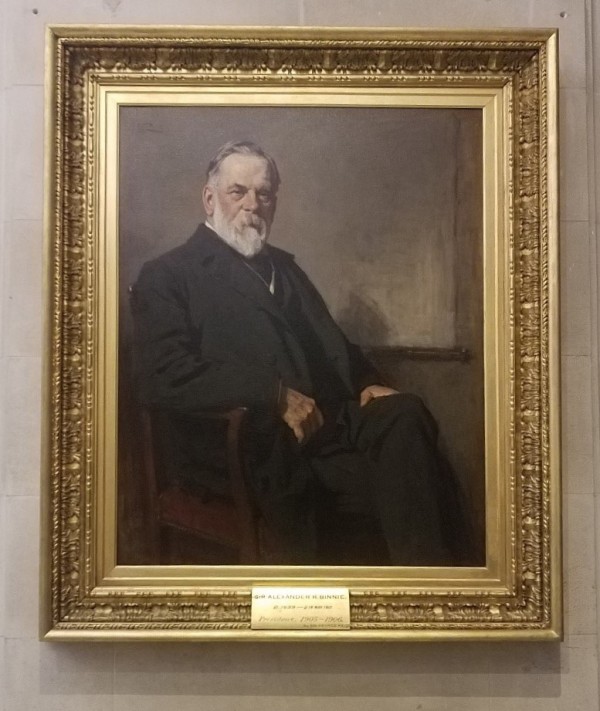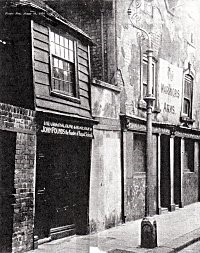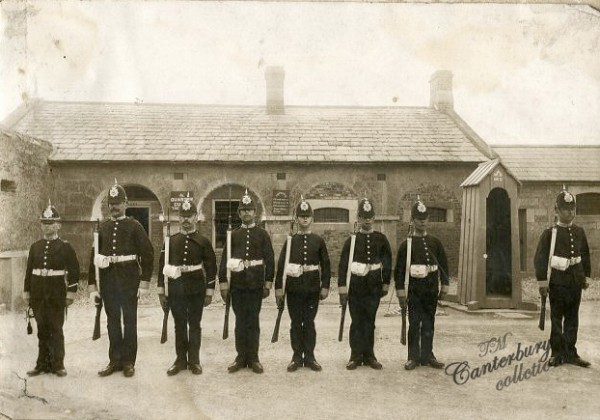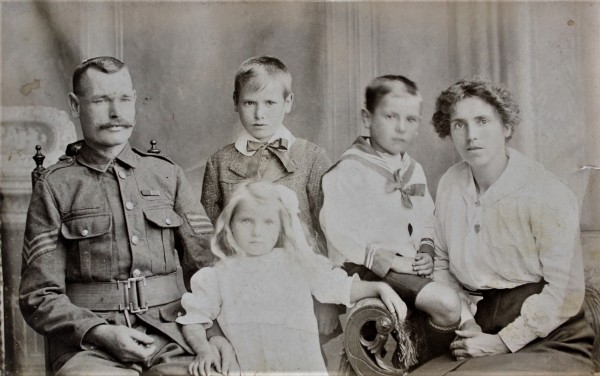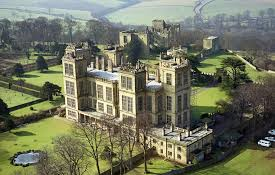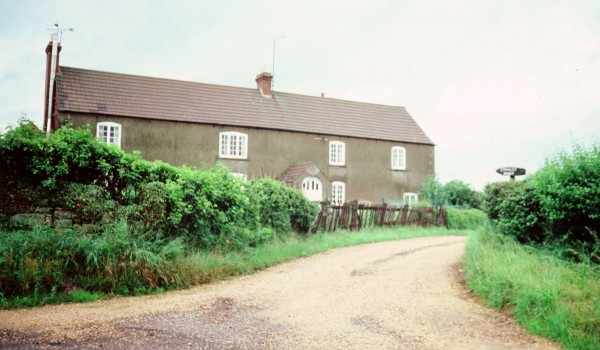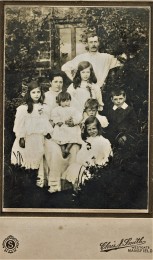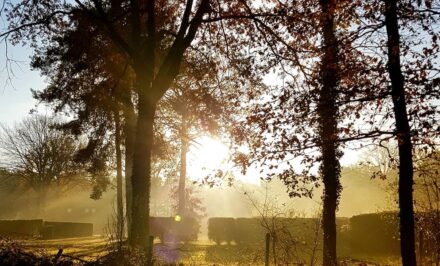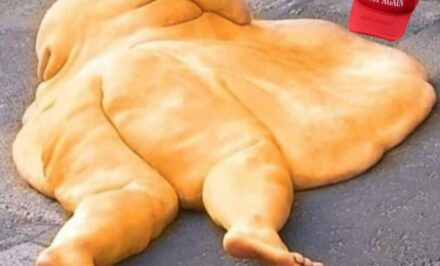Gulf impassable, breach indescribable
On the feelings of class inferiority and resentment.
Crime novels, and not only they of British origins, surely wouldn’t exist without some class consciousness. The British Empire was defined by it. Our author has witnessed it all. More of his musings to follow.
I
It was the first week of January 1970 and I was finishing up my Ph.D. at University College London in Bloomsbury. It was damp and cold in the underground hydraulics laboratory, buried 6 feet below the neoclassical Gower street quadrangle[1]. The Carnaby Street ‘Swinging London’ era of the 1960’s was expiring.
I was on the verge of panic. On December 31st, after two extensions, my grant money had finally run out. My government funded university education was over and I was about to be ejected into the working world. At the age of 24 I had finally to answer the long-deferred question: ‘What do you want to be when you grow up?’
My new gold embossed parchment certificate from the London University Regents would qualify me as a philosopher in hydraulics engineering and give me an entry ticket for joining the well paid upper middle class. But to accomplish this it seemed I had only two choices: join a prestigious consulting engineering firm in London, or attempt to climb the staircase of academia.
In those days, prestigious British consulting engineering firms were headquartered in the opulent row of Victorian red brick buildings that then stretched along Victoria Street in Westminster, a convenient 5-minute walk to the lobby of the Houses of Parliament. Two weeks before, I had been invited to an interview at Binnie and Partners, which was then the leading practitioner of water engineering, specializing in designing dams, in the remnants of the British empire. William Binnie, the current senior partner’s father, had designed the first Aswan dam on the Nile River.
I was ushered into the company board room whose décor seemed more appropriate to what I imagined a Pall Mall gentleman’s club would look like, rather than a civil engineering consultancy. As I sat across a baronial oak table fielding questions from my grey suited interview panel, I was awed by the 20ft ceilings, the stuffed leather chairs, and the oil portraits of previous generations of eminent partners of the company glowering contemptuously down at me.
Just the previous week, I had been correcting the numerous spelling mistakes in my final thesis draft, when my Ph.D. supervisor, Dr. P.H. Kemp paid a surprise visit to the laboratory. Over the previous three and a half years Dr. Kemp had kept my research well supplied with government grants but I had rarely seen him after that first week in 1966 when he ushered me downstairs and closed the door behind me. We were on affable but formal terms. I never called him by his first name.
We had had a very English oblique conversation; I understood Dr. Kemp to be ‘sounding me out’ to see if I was interested in pursuing a post-doctoral fellowship. I was as deliberately vague about my intentions as he was of enquiring of them. I had two reasons for this: One of these was that I felt that my new academic credential was a bit of a fraud, the product of grinding labor rather than brilliance. In my long schooling I had become adept at passing exams but always thought of myself as a solid B grade student, justly earning a 2.1 Honors degree not a ‘First’ like real scientists. Only much later after becoming an American and discovering we were supposed to have self-esteem, and then teaching at a prestigious university, did I appreciate my intellectual mediocrity had plenty of company.[2]
A consultancy or academia? which of these paths to take?
Every time I thought about it I felt I couldn’t breathe, paralyzed by an overwhelming sense of claustrophobia. Both choices seemed like prison sentences.
There was only one way to resolve it: Escape!
I grit my teeth, took the tube down to Charing Cross and speed-walked in the January drizzle through Trafalgar Square to the doors of another imposing neoclassical building, this one hung with newly minted red and white flags.In those days, as a British subject[3]you could walk into the Canadian High Commission apply for, and receive, Canadian immigration papers on the spot.
A week later I was on a Boeing 707 one-way charter flight to Salt Lake City heading for Vancouver B.C. In my pocket, I had a $99 for 99-day unlimited travel greyhound bus ticket, and 150 pounds in cash. [approximately $400 at that time].
I had no idea what I was going to do when I got there.
But I could breathe again!
I never found out if Binnie and Partners ever offered me that job.
II
I have now lived in San Francisco for the last 48 years, and still, after all this time, in a conversation with a stranger, the second question I am usually asked is ‘What brought you to America?’ The answer is both personal and complex so at first I try to brush it off with something lame like “I heard there was gold in them-thar hills’. It is true that at that time, in 1970, what drew me to the New World was the image I shared with many immigrants, that it was ‘the land of opportunity’ free of class distinction.
Unless I have had a couple of drinks with a fellow British expatriate I seldom talk what made it so easy to leave England, that darker centrifugal force, the root of my intense feeling of claustrophobia: My sense of being trapped and diminished within the British class system.
Many Americans, fed sucralose representations of British class relationships in TV shows like ‘Downton Abbey’ or ‘Upstairs Downstairs’ find it hard to understand what I am talking about. Why would someone with my background, education and privilege be so bothered by something so quaint and obsolete?
I had grown up indoctrinated by a set of English social values and behaviors, many of which I still retain. One of these imperatives is ‘stop whining’ in the face of adversity, the subtext of those irritating ubiquitous ‘keep calm and carry on’ posters. Aren’t the indignities inflicted by British class prejudice trivial compared to the atrocities inherent in racism and sexism that most of the world’s population must endure? Doesn’t every country, including ostensibly egalitarian ones like the USA, always have an inherent social pecking order that favors the rich and well born? So, what’s the big deal?
To explain, let us to return to that interview at Binnie and Partners.
My dominant memory is of what I saw in the fifteen minutes waiting for the interview panel to file into that gloomy Board room. I had time to examine in detail all those august portraits of current and past Board members hanging on the walls. Each one seemed to have some title or other: Sir, Lord, I recall even a Viscount.
In the UK, unlike in the USA or most of the rest of the world, the engineering profession did not have a very high social status, even though the wealth of the country had been built on their achievements during the industrial revolution. In British class culture, even in the 1960’s to tell someone that you were an ‘engineer’ could make them think you shoveled coal into a steam engine. At that time engineering was one of the few professions where it was relatively easy for talented working-class artisans [they were all men in those days] could ascend the social scale through apprenticeship into the profession. I was neither working class nor an artisan, but what those intimidating portraits in that board room told me was at Binnie and Partners, I would be entering a world where I would always be at a social disadvantage.
And the other, the first reason, why I had been so equivocal in that conversation with Dr. Kemp? Anticipating his enquiry, I had already researched my prospects in different civil engineering departments in the UK. I found in almost all instances the heads of these Departments were held by men with an almost identical pedigree. They had attended exclusive British ‘public’ -this means private, boarding schools, followed by degrees from the elite universities of Oxford or Cambridge. They spoke with a different accent, had different manners, and possessed an unjustified higher level of self-confidence than me. These professors of civil engineering who had made it to the top had been born into a higher class.
III
Where did my feelings of class inferiority, and resentment, come from?
I grew up in a lower middle-class family in which my parents had higher social ambitions. My brothers and I were smart enough to qualify for the nearby government funded Gosport Grammar School, but this was not enough. My parents wanted us to go to a private school that would elevate our social status. Due to a combination of circumstances, only I was permanently inflicted with this choice and was forced to serve an 8-year sentence at a fee-paying day school across the harbour in Old Portsmouth. The 200-year-old Portsmouth Grammar School [PGS], was a type of school that George Orwell would call a ‘crammer’.
Our school building was in a repurposed army barracks. Two streets away in 1818, John Pounds, a crippled shoemaker had started feeding and teaching poor and homeless children in his home and workshop. This was the first of what became known across the country as ‘Ragged Schools’, free schools for poor children, supported by public donation.
After school on my way to catch the ferry back home to Gosport I sometimes walked past the site of John Pound’s school. Until I researched this essay, I had mistakenly thought that he was the original founder of PGS; that somehow his original Ragged School had been expropriated by Portsmouth’s upper middle class long ago. This was because our classrooms were freezing cold, with peeling paint and bare wood floors, our schoolbooks ink soaked and well thumbed, and our school lunches Dickensian and inedible.[4]
During my time there from 1955 to 1963 PGS was run according to educational principles that had hardly changed since Victorian times. These aped the ethos and curriculum used in the expensive elite ‘public’ boarding schools like Eton and Harrow where the aristocracy and oligarchy sent their sons. In the 1830’s Thomas Arnold, headmaster of Rugby School had established these new teaching methods and they had been popularized in the novel ‘Tom Brown’s Schooldays’. Arnold saw the purpose of ‘public’ schools to instill attitudes and beliefs referred to as ‘Muscular Christianity’; that apart from piety; ‘embraced patriotic duty, athleticism, teamwork, discipline, self-sacrifice, courage, loyalty, obedience and chivalry’; but also‘the expulsion of all that is effeminate, un-English and excessively intellectual’.A primary means for accomplishing all this was enforced participation in team sports; particularly the upper-class games of rugby and cricket.
The ‘public’ boarding schools were where upper-class boys were supposed to learn the ways of speaking, habits, manners and acceptable social behavior that would clearly differentiate them as of a superior class, fit to rule. In the early 1960’s, at a time when the Beatles were becoming role models for our generation, PGS headmaster Hibbert decided to further emulate the habits of these elite schools. He instituted a new fashion and forced us to wear Bertie Wooster type straw ‘boater’ in an attempt to evoke class, privilege and English languor. These hats clearly differentiated us from all the other schoolboys in town -and they made sure we suffered for it.
To elevate our morals, we had compulsory team sports followed by communal showers every Wednesday and Saturday afternoon, compulsory prayers every morning, compulsory attendance at Portsmouth Cathedral for Christian festivals, corporal punishment and discipline enforced by older student ‘prefects’. Our competitive instincts were honed by dividing us into four separate ‘houses’[5]so that there would always be collective winners and losers in sports and exams.
After excelling at sports, we understood our next priority was to pass exams, preferably the ones that got you into Oxford or Cambridge. The purpose of teaching us in this way seemed not so much for us to learn, but to enable us to demonstrate hard work, discipline and perseverance. This meant we had lessons every Saturday morning but were allowed Sunday free to catch up on the homework we hadn’t enough time to finish on weekday evenings.
We were forced to specialize our studies by the age of 13. Qualifying in the classics, Greek and Latin was the most prestigious because it virtually guaranteed a place at Oxbridge, modern languages came second, and if you could not do well at either of these you were dumped into the science stream, as I was.
I spent most of my 8 years at PGS in an atmosphere of fear. Fear of bullying from other boys, fear of punishment for absurd or incomprehensible crimes, and fear of failure. I was an abject failure at sports, relegated to the fourth ‘eleven’ in cricket and fourth ‘fifteen’ in rugby. The after effects of my intestinal surgeries at the age of 10 had meant I was underweight, often fatigued and weak for my age – but having persistent diarrhea was a shameful secret that I would never admit to my teachers, -nor my parents. I knew if my classmates were to find out I would be the subject of derision for the rest of my life.
Lacking physical prowess meant that it was imperative I pass exams, and this was doubly important because I had been put in the ‘A’ form. The A form curriculum was intense, we had to achieve the same academic results in 6 years that the B, C, and D’s took 7 to do. But this meant you could escape school and gain freedom at age 17 instead of 18. Every year the bottom two pupils were demoted from the A form to the B. This terrified me. I worked desperately hard and despite my complete inability to learn French, German or Latin I somehow managed to come in 3rdor 4thfrom the bottom every year.
There was another reason to fear relegation to a B, C or D. You weren’t just considered dumber if you were in these forms but also ‘lower class’.
At that time PGS was a battleground in the British class war. The Labour party had long held that attendance at elite universities, public schools and private schools like PGS was how class privilege was perpetuated. Labour’s vision was to transform Britain to an egalitarian meritocracy, providing equal opportunity for advancement for rich and poor children alike. To do this they attempted to abolish private schools and replace them with ‘comprehensive’ secondary schools, like American public high schools. These proposals were bitterly fought by the Conservative party, whose leaders were mainly upper class public-school alumni.
A temporary compromise was reached that required PGS to admit 25% of its pupils free of charge from poorer backgrounds, in return for partial government funding. Coming from a working-class background meant most of these boys never bought into the ‘Muscular Christian’ ethos and were not intimidated by the disciplinary regime of the school. They ended up concentrated in the C and D forms.
To survive, I learnt how to be stoical, observant and ‘disappear’ so that neither my fellow students nor my teachers noticed me. As I watched from behind my shell, I started to become aware of the flaws, unfairness and hypocrisy of this hermitical world. I was an avid reader, spending as much time as I could in the Gosport Public Library, an autodidact learning about the real world. By the age of 16 I had started to discover my identity, shaped by my reaction to the values and experience my school had imposed on me. I remember in one class at that time we were asked which newspapers we regularly read. Out of 25 boys I was the only one who read a left-wing paper, the Guardian.
Then it came time to leave. I remember the look of surprise and concern when I told my science teacher that I was going on to study Civil Engineering. I think I might have been the first he had encountered. Then the last act was the ritual of a formal goodbye with headmaster Hibbert. He could not recall who I was.
The following year headmaster Hibbert was gone. The PGS history archives notes his replacement recognized ‘the need to adapt to the liberal spirit of the age.’ The Beatles had just released ‘A Hard Day’s Night’.
IV
While I was enduring my time at PGS, at home, I was conscious of class conflict playing out between my mother and my father. My mother was unhappy. She had married a social class beneath her.
My mother was ascendant in this intrafamily class struggle. My brothers and I were dissuaded -forbidden, to have contact with what she considered to be my lower-class father’s family. She seemed to think that association with the Williams’s would be a bad influence. We might start smoking Woodbine’s and going to football matches.[6]This meant I never met my paternal grandmother[7]. We socialized with my maternal Wileman cousins in faraway Nottinghamshire, not the Williams’s in nearby Kent.
V
Why did my mother so disdain my father’s family? Genealogical investigation doesn’t reveal my father’s family was very different from my mother’s. My father parent’s ancestors, the Williams and Styles, had been predominantly farm workers and general labourers in east Kent. My mother’s parent’s, the Wilemans and the Bowens had been coalminers and labourers in Nottinghamshire.
When the English agricultural economy collapsed in the late 19thcentury due to the importation of cheap wheat from the USA, it appears the Wilemans fared better than the Williams. Industry was booming in Nottinghamshire whereas in Kent there were few options for the unemployed. But one of those options was right there in Canterbury where my ancestors lived.
During the Napoleonic wars east Kent had been militarized to prepare for Napoleon’s invasion. Infantry, cavalry and artillery barracks had been built on the outskirts of the city along the main road toward the nearby village of Sturry. These then housed a large permanent army garrison that dominated the social life -and economy, of Canterbury until after the first world war. Canterbury became an army town,[8]very different from the destination of Chaucer’s pilgrims.
My great-grandfather, George Williams, had been born in Bethnal Green, one of the poorest and most squalid slums of East London.[9]One of the few ways of escaping absolute poverty for young men in Victorian times was to volunteer for the army.[10]Nothing much had changed since Daniel Defoe wrote in 1719; ‘in winter the poor starve, thieve or turn soldier’.
After a long tour of duty in India as a private in the 3rdHussars, George and his regiment were garrisoned in the cavalry barracks in Canterbury along Sturry Road. Here he met and married Emily Taylor, a Canterbury girl, in 1873. Emily came from an impoverished family, her father, my great-great grandfather, had been incarcerated in the Canterbury workhouse in his youth. During his time in the army George had contracted encephalitis and was finally discharged as ‘unfit for service’ in 1879. He and Emily took up lodgings on Military Road next to another barracks, that of the oldest regiment in the British Army, the East Kent Regiment, known as the ‘Buffs’.[11]
It seems inevitable that growing up so close to the regimental headquarters, George Williams’ three sons, patriotically named George, Arthur – my grandfather, and Alfred, should all volunteer for the Buffs when they were teenagers. George and Arthur fought in the Boer war; Arthur and Alfred spent much of their service in India and Burma.
On his return from India grandfather Arthur took up lodgings on Sturry Road opposite his regimental barracks, and a few blocks from where he was born. Here in 1906. he met a neighbor, my grandmother Nellie Styles. The Styles family had lived in Canterbury for several generations in the poorer eastern part of town near the barracks. They were labourers and woodcutters who had never had the benefit of public education nor of a Ragged School; all my Styles ancestors before Nellie’s generation were illiterate. Two of Nellie’s three surviving brothers also enlisted in the army as privates.
This meant my father and his family grew up in an army world, watching peacetime military parades outside their front door. Then in wartime, when my grandfather was sent to France and the family moved to Dover, they experienced the first air-raids and zeppelin bombings of England.
Before the first world war Britain never had conscription, and enlisted ranks of the professional army of Queen Victoria were despised by all classes. The working class had experienced strike breaking and repression at the hands of county regiments, the middle class were deeply distrustful of the uncouth peasants and semi-criminal paupers that comprised of so many recruits, and the upper class -even the army’s own officers, echoed the Duke of Wellington’s opinion that they were ‘the scum of the earth’. Their only sympathetic chronicler Rudyard Kipling, wrote a poem, ‘Tommy’, in 1892, and it starts with a complaint:‘I went into a public-‘ouse to get a pint of beer,
The publican ‘e up an’sez, ‘We serve no red-coats here.’
Amongst his fellow soldiers ‘Tommy Atkins’[12]referred to their enlistment as ‘donning the widow’s uniform’.
Does this explain how the reputation of the Williams family might appear to someone like my mother, unsympathetic to their hardship?
V
With all this genealogical research I now understood class prejudice against my father’s family. The other side of the story is how my mother had become so imbued with upper class aspiration- beyond her family’s actual station.
When I was young my mother told stories that made me believe I was somehow descended from minor gentry that had fallen on hard times. She told me of a golden age growing up on an ancestral family farm in Nottinghamshire called ‘Stanley Farm’ that had a coat of arms over the front door [of course I assumed it was the Wileman’s]; and as a young man my grandfather had ridden with the Duke of Portland in his private cavalry troop.[13]
This elevated status did not correspond with my early childhood memories of visiting the smallholding where my Wileman grandparents lived. It was called Portland Dairy Farm and the address was ‘Dukes Cottages’. They were tenant farmers of the Duke of Portland, making a living by delivering milk and selling my grandmother’s needlework.
I recall they lived in a 200-year old stone farm house, with a couple of barns, a pig sty and two fields, triangulated within the intersection of two busy railway lines serving nearby collieries, and a busy road that isolated it from the factories of the nearby town of Sutton-in-Ashfield. My dominant memory, apart from the magnificent apple orchard outside the kitchen door was the smell of the outdoor pit privy.
My mother died in 1966 and I never had the opportunity to find out more about that other, more idyllic, ancestral Stanley Farm. When I asked her sisters, they would say dismiss her stories, saying ‘oh that Dot was such a romantic’.
In 1982, on a visit to England I was staying for a few days in Sheffield, not far from Sutton-in-Ashfield, and out of curiosity I decided to see if Stanley Farm was a real place. It was a good excuse for a walk in the countryside. My first task was buying ordinance survey topographic map #269 that covered the area. Scanning this map outwards from Sutton-in-Ashfield, I eventually located a hamlet called ‘Stanley’, right on the Derbyshire border. The nearest bus stop was in Bolsover about six miles to the north, so following the map I trudged south on footpaths and country roads. After a few miles I noticed I was heading towards what looked like a ruined castle on a hilltop. As I got closer I realized it was no castle, it was a Renaissance palace, covered in scaffolding, under renovation by the National Trust. This was Hardwick Hall, built in the 16thcentury to rival Hampton Court, for the richest woman in England, Bess of Hardwick, Countess of Shrewsbury. It was Bess, through her friendship with Elizabeth 1stand then four successive marriages, who had established the wealth of one of the most influential political families in England, the Dukes of Devonshire. They later built an even grander palace nearby at Chatsworth House that is now a major tourist attraction for foreign visitors.
Hardwick Hall looked down across the valley onto the hamlet of Stanley.
It was easy to find Stanley farm because there were only four buildings to choose from, and it was clearly signposted. It was not the grand manor house of my mother’s story but was more salubrious than my memory of “Dukes Cottages’ and it was still evidently a working farm. I rang on the doorbell and walked around the barns at the back but there was no-one there, not even a barking dog. I had wanted to find out if anyone there knew what had been on the coat of arms that had been removed from over the front door. I could see a blank imprint of a shield on the stucco.
A few months ago, I obtained a copy of my mother’s birth certificate. Yes, there it was. She had been born in Stanley Farm and baptized in the parish church in nearby Teversal Village. St Katherines Church also happened to be the ‘family church’ of the Earls of Carnarvon who had a manor house, in Teversal village[14]. That crest over the doorway? Probably the Duke of Devonshire’s or Earl of Carnarvon’s.
The other part of my mother’s story, about my grandfather riding with the cavalry troop, could have been true. During my grandparent’s time the 6thDuke of Portland lived in a palace called Welbeck Abbey about ten miles away in an area still called ‘The Dukeries’ because four Dukes have their country residences in close proximity, in what was the last remnant of Sherwood Forest. [15]He, like most fellow aristocrats, was an avid horseman, breeding racehorses that won the Derby and Ascot Gold Cup. He was appointed ‘Master of the Horse’, an honorary title with no responsibilities, but it made him third in precedence over all the other aristocrats in the Royal Court.
According to my cousin Barbara, my grandfather also bred horses. This ended when WW1 started, and all were commandeered for the army[16]. ‘Our grandfather was ‘heartbroken’ Barbara said. Last January I met with Barbara and my cousin Janet Wileman, a few miles from Sutton-in-Ashfield at the ancient Hutt Inn next to Newstead Abbey[17]where my parents wedding reception had been held in 1937. Janet gave me flash-drives with old family photos. Included in them was this invitation to the Duke’s garden party for my grandparents:
Now I can better understand how aristocratic stardust might have rubbed off on my mother. My aunt Celia, her sister, summed up the reason for my mother’s discontent: “Dot wanted to marry a prince and ended up with a petty officer’[18].
The peculiar thing is that none of her five siblings seemed to have been influenced the same way. Two had emigrated to Canada and the other three stayed in Nottinghamshire. My memory of the Wilemans is how unpretentious and straightforward they were. I always looked forward to staying with them because their family life was free of the tension of class consciousness. Unlike us, they were northerners.
D.H. Lawrence grew up in Eastwood Nottinghamshire, only about 7 miles from Stanley Farm and Sutton -in-Ashfield. The son of a coal miner, he was one of few English writers to emerge from the working class and is most famous for writing ‘Lady Chatterley’s Lover’. This book scandalized the British public in the 1930’s, not just because of its explicit erotic writing, but also because of it has a narrative of miscegenation between a working-class man and an upper-class woman.[19]Many of Lawrence’s novels are set in the time and landscape that my grandparents, and my mother as a young girl, inhabited. He loved this bucolic Nottinghamshire countryside on the border with Derbyshire, even though marred by coalmine slag heaps. Lawrence used to go on walks to Teversal from Eastwood, and selected the old name of my mother’s village, ‘Tevershall’ as the location of his fictional Wragsby Hall, the estate of Lord Chatterley.
In Lady Chatterley’s Lover this is how Lawrence described class attitudes of the coal-miners, the people he grew up with:
‘There was no communication between Wragby Hall and Tevershall Village – none. No caps were touched, no curtseys bobbed. Gulf impassable, breach indescribable, such as is perhaps non-existent south of the Trent. But in the Midlands and the industrial North, gulf impassable, across which no communion could take place.’
I grew up south of the River Trent, in the deep south of England in Hampshire, where unlike the North, rural culture had been gentrified well before Jane Austen’s time. To escape that ‘communion’ of classes, which I saw as servility and obsequiousness, I left Gosport as soon as I passed my exams at PGS, and at the age of 17, escaped to Sheffield University in the industrial North, where people were proud of themselves and touched no caps.
This was my first attempt to escape British class claustrophobia.
VII
My mother’s attempts to instill in me upper-class values and graces had the opposite effect. By the time I reached adolescence in the early 60’s I had emphatically rejected it all, the good and bad alike. Along with most of my generation, I rebelled against everything: not just deference to my betters, but anything that hinted at respectability; and for me this included table manners and other forms of politeness. I even thought for a time that brushing my teeth was a bourgeois affectation.
In 1956 the author and aristocrat Nancy Mitford had published ‘Noblesse Oblige’ that contained her famous essay on ‘U and non-U’ which described what differentiated the upper class from everyone else. For example, “when drunk, gentlemen often become amorous or maudlin or vomit in public, but they never become truculent’. Nancy Mitford’s sisters were extraordinary characters. Diana married Oswald Mosley, leader of the British fascist party, Deborah became the Duchess of Devonshire [and possibly the proprietor of Stanley Farm], and Jessica or ‘Decca’ became a communist at 19, went to Spain to support the Republicans against the fascists in the Civil War, married Winston Churchill’s nephew, emigrated to the USA, then after her husband was killed in WW2, married a courageous civil rights lawyer and fellow communist Bob Truehaft. She worked with him supporting civil rights for blacks in the south in the 50’s and 60’s. Decca’s writing ability and sense of humor was similar to her sister Nancy’s. In response to ‘U and non-U’ she wrote a pamphlet ‘L and non-L’ identifying the language and behavior that differentiated leftists from everyone else.
Decca was one of the few English aristocrats I have spent time with. She and Bob were living in Oakland California in the early 90’s and my then-wife Catherine Caufield had become friends with Decca; they were both writers with a similar sense of sardonic wit. During 1994 we had regular lunch dates with Decca and Bob at a nearby Sizzler steak house, their favorite restaurant chain. This was because the help-yourself salad bars were not policed, and they delighted in taking multiple refills -it was subversive. I got along fine with Bob, as I do with most Americans. Unlike many high-powered Harvard lawyers, he was easy going and self-effacing, even though he had much to be proud of, representing the Berkeley student’s free speech movement and fighting racism and union busting throughout his career. But I found Decca hard to like. Despite her lifelong passionate commitment to leftwing causes she retained all the airs, graces and condescension of an English aristocrat. I often felt she was looking down her nose at me.
On one occasion she had invited us for dinner at her house. After informal drinks in the lounge we gathered in the dining room. There was an awkward pause. I didn’t know why. Decca was glaring meaningfully at me. Finally, at Bob’s prompting I understood what was expected of me: to stand behind Decca’s chair and seat her before everyone else. This was a first experience for me, long used to California casual behavior. Was this one of those gentleman’s etiquette lesson that my mother had wanted me to learn? I felt humiliated. All those old class resentments I thought long gone flared up again -but I said nothing.
The last time I saw Decca and Bob was when they came to my party in my Barbary Coast pub[20]to celebrate finally getting US citizenship. It was a big raucous crowd and I remember late in the evening, half sloshed, having a great time up on the bar balcony haranguing my crowd, waving a 10-gallon cowboy hat, and singing a terrible rendition of Kenny Rogers’ ‘Lucille’. Then I caught Decca’s eye. She was not amused.
VIII
When I first came to America, or more particularly California and San Francisco it was easy to deceive myself I had arrived in a classless society. Sure, there were rich and poor, and racial prejudice, but there was nothing like the claustrophobic class consciousness blanket that suffocated me growing up in England. Californians usually treat each other with friendly egalitarian respect and a genuine easy politeness.
But social attitudes are changing both here and in the UK. In Britain, a new upper class is emerging, blending with the old aristocracy, and based on the meritocracy the left had advocated 50 years ago[21]. PGS eventually lost its government funding and has reinvented itself as an expensive co-educational fully private school. It’s high academic reputation has made it the most desirable place for wealthy parents to send their children, who then have the advantage in securing places at elite universities. It is at these universities that the social contacts and skills are acquired to get the most desirable and higher paying jobs that pass on from generation to generation. British society is becoming more stratified and less socially mobile. The new upper class inherit wealth in this form of social capital -as well as real estate and stock portfolios. The underclass remains the same as before, a property-less impoverished renting subclass, but it is now vilified in British culture as ‘chavs’ or ‘benefits scroungers’. The old working-class solidarity culture that we middle class leftist students sought to emulate 50 years ago, of trade union rituals and pints in the public bar, is now largely dissipated or disdained.
And now comfortably retired, I am happily married and living on Telegraph Hill, with a view looking out across San Francisco Bay to the Golden Gate Bridge. I am a typical member of wealthy, educated, left coast, left wing coastal elite, and I now find myself vilified on the other side of a newly stimulated class divide.
It is no longer possible to pretend I have escaped the tentacles of the British class system.
When England founded the American colonies of the South, it transplanted its hereditary hierarchy, whose worth was measured in blood-lines, land, and the number of servants – then slaves. The American Revolution was against the British monarchy, not the British class system.
Most of the first settlers from the British Isles were poor; they came as indentured servants or tenant farmers. In the 18thcentury their numbers were increased by a huge wave of even poorer immigrant families who came directly from the borderlands of Scotland and England or via the Protestant plantations of Ulster.[22]The colonies leaders, the newly established aristocracy, took no responsibility for these impoverished newcomers, or for the growing poor landless underclass in their communities. They regarded them all as human ‘rubbish’[23], to be quickly moved on to the backwoods of the Indian territory frontier in Appalachia. There, isolated, impoverished, uneducated, they subsisted in a chaotic violent land, eventually spreading westwards to become the ancestors of successive generations derided as ‘crackers, poor white trash, hill-billies, and trailer-trash’.
In an increasingly ethnically diverse and prosperous US succeeding generations of these southern whites lagged in income, education and health, but retained a strong sense of cultural identity, a culture defined by individualism, resort to violence, and blood-lines. They still constitute the largest, most homogeneous bloc of voters of British ancestry in the USA.
For the last 200 years unscrupulous politicians like Andrew Jackson or Richard Nixon have exploited their class resentment, convincing them that American blacks were their class enemies, rather than the landlords, plantation owners and coal mine owners of their own race who exploited them. This is how an observer at a 1903 Mississippi governor’s election rally described its participants:
They were the sort of people that lynch negroes, that mistake hoodlumism for wit, and cunning for intelligence, that attend revivals and fight and fornicate in the bushes afterwards. They were undiluted Anglo-Saxons[24].’
Now the Republican party, subservient to Donald Trump and Rupert Murdoch’s Fox News have convinced the contemporary generation of American Anglo-Saxons to resent a new class enemy:
Me.
More to come …
Copyright: Philip B. Williams, 4/24/18.
Phil Williams was born in Chatham U.K in 1945. After completing a Ph.D. in hydraulics engineering at University College London, he emigrated to Canada and then the USA in 1970, where he has had a varied career as engineer, environmental activist, entrepreneur, CEO and academic. Now retired, he lives in San Francisco and is writing his memoirs.
See also, in CrimeMag May 2018, his essay „An Englishman Abroad“.
For contacting the author please write us: CrimeMag at gmx.de
All pictures from the archives of the author.
Notes:
[1]Scene of at least a dozen movie location shots from ‘The 39 Steps’ to ‘Inception’
[2]Although to give my self-esteem creditit was boosted two years later when Professor Mehmet Yalin, referred to my published work in his new textbook ‘The mechanics of sediment transport’ as ‘remarkable’ and ‘interesting’ new research.
[3]Only in 1983, did British ‘subjects’ become ‘citizens’.
[4]I now learn PGS was founded in 1732 by the Mayor of Portsmouth
[5]As dramatized in Hogwarts School
[6]Then cultural signifiers of the working class.
[7]My paternal grandfather Arthur, had died long before I was born
[8]Typically, 3000 soldiers in a city of 12000.
[9]Where Jack the Ripper committed his crimes
[10]About 25% of the imperial army were Irish in this time
[11]Founded in the City of London in 1572 to support the Dutch fight for independence. The East Kent regiment was called the Buffs because of the original colour of their 18thcentury uniforms.
[12]The generic term used at the time for a British army private
[13]Hillary Mantel, in her 2016 Reith lecture notes that this type of ‘golden age’ story is the most familiar trope of handed down family histories.
[14]The 5th earl of Carnarvon was famous for digging up King Tutankhamen, the 8th and current earl is more famous for being the owner of Highclere Castle, used as a set for the TV series “Downton Abbey’.
[15]The Dukes had grown very wealthy in the 19thcentury from the lucrative coal seams that fortuitously had been discovered on their vast Nottinghamshire estates.
[16]As dramatized in movie ’War Horse’
[17]Formerly the country seat of Lord Byron,
[18]My father retired as a Royal Navy sub-lieutenant
[19]In contrast to the then culturally condoned sexual predation of working class women by upper class men.
[20]I then owned a 3% share of San Francisco’s first brew pub
[21]See ‘Social Class in the 21stCentury’ Mike Savage
[22]Now identified as ‘Scots-Irish’ in the US, at the time they referred to themselves as Saxon-Scotch or Anglo-Irish;
[23]Thomas Jefferson’s characterization
[24]As reported in ‘White Trash, the 400-year untold history of class in America’ by Nancy Isenberg


